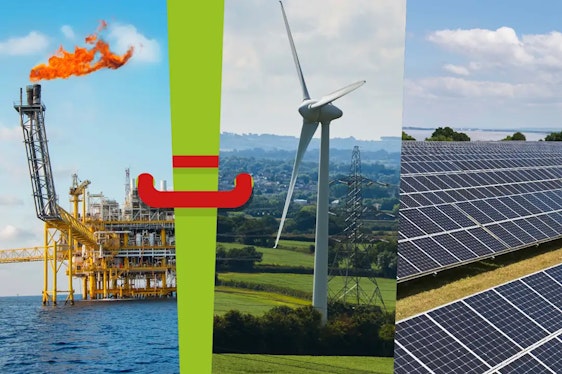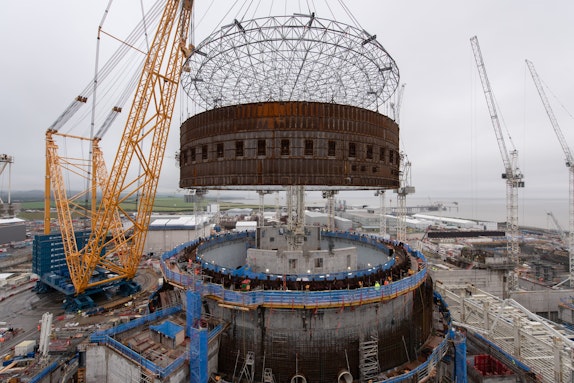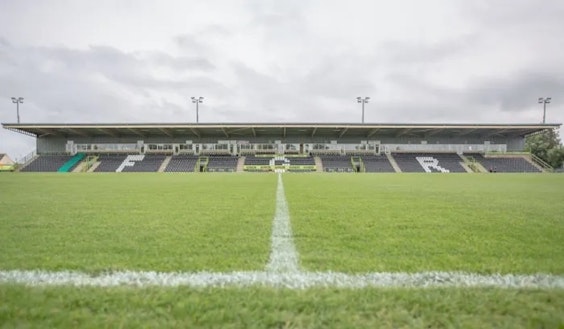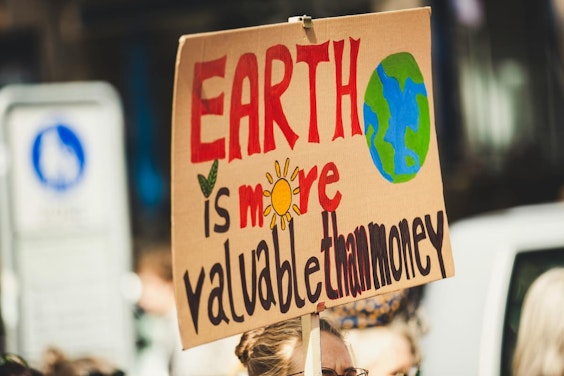
Breaking the Link Between Fossil Fuel and Renewables
High energy bills persist because our market ties green energy prices to fossil gas costs. Breaking this link could finally deliver cheaper, fairer, stable electricity.
The salmon farming industry is a disaster for the environment - plain and simple. Scotland produces vast quantities of factory farmed Atlantic salmon making it the 3rd largest in the world after Norway and Chile. But it isn’t a title to be proud of as this industry is wreaking havoc on the environment.
Time and time again, environmental groups, including those we work with at the Green Britain Foundation, have exposed the horrific conditions inside these farms. And yet, nothing changes. The cruelty continues, unchecked. If we care about our oceans, and the lives that depend on them, this industry has to go.
Undercover footage taken at salmon farms across the UK reveals a horror show - diseased, dying fish crammed together in their tens of thousands, rotting corpses floating among the living. The death rate? One in four doesn’t even make it to adulthood. That’s before you get to the sea lice infestations, genetic pollution, and toxic waste pumped straight into the ocean.
Their dirty secret? Excessive use of legal and illegal chemicals and medication within salmon farming, ranging from antifoulants, antibiotics and pesticides, has dire consequences on fellow marine life, ecosystems and the seabed. These toxic chemicals, such as deltamethrin, completely destroy fauna and flora on the ocean floor beneath the cages - creating a dead zone, wiped clean of life. A three-year post-closure environmental study conducted around Mowi's former small organic Isle of Ewe fish farm, published on November 4th, 2024, claims to show seabed recovery following the cessation of farming operations. But industry publicity about this study makes no reference to it being peer-reviewed or published in any scientific journal.
The health of our marine and terrestrial ecosystems must take precedence over short-term economic interests.
Farmed salmon are crammed, one hundred thousand at a time, into a small seawater cage; creating a breeding ground for disease and sea lice to spread from one fish to another. Sea lice, ecto-parasitic copepod crustaceans that naturally occur in the marine environment, attach themselves onto a fish host - causing physiological stress and an increase in fish mortality rates. These lice have a large ability to develop a tolerance to various treatments – particularly chemical-based ones. Because the salmon are unable to migrate to fresh water, they are unable to shed the lice without treatment. These farmed fish are forced to experience multiple lice treatments during their unnaturally short lifespans and fish on sale at supermarkets have been found with lice still attached to them. Next time you pick up a fish to eat and wonder what it is you’re eating - it’s more often than not parasitic sea lice.
You only need to see the countless footage that has been exposed from farms where these poor fish are riddled with these tiny ectoparasites, mutilating them from the outside.
But these cages have open holes - enabling lice and diseases to transfer to other aquatic life nearby. A single salmon farm can increase the sea lice burden on migrating juvenile salmonids by as much as 73 times above normal levels.
When wild and farmed salmon breed as a result of escape this alters the genetic makeup of wild populations. The Green Britain Foundation exposed a significant environmental incident that threatens Scotland’s pristine waters and wild fish populations in A Freedom of Information request which revealed approximately 80,000 farmed salmon escaped during a transport operation, marking the largest escape event in the country in nearly a decade. This major incident, which risks damaging Scotland’s endangered wild Atlantic salmon, only recently came to light due to a critical gap in official reporting mechanisms.
The main UK population of Atlantic salmon are now on the endangered IUCN Red List, and global Atlantic salmon populations are on the near threatened list. There has been a 30 to 50% decline in British populations since 2006. Yet the staggering reality is all Scottish salmon is farmed and wild salmon is no longer fished commercially anywhere in the UK.
The staggering drop of wild Atlantic salmon is no mere coincidence. It comes hand-in-hand with the enormous expansion of the farmed salmon industry.
The salmon industry loves to peddle the line that they’ve got their feed efficiency sorted - that it only takes "less than a kilo" of wild fish to produce a kilo of farmed salmon. But that’s total nonsense and reality paints a far more sinister picture.
Farmed salmon are brought up on a completely different diet to their wild salmon counterparts - mainly fish oil and meal made from millions of tonnes of wild caught fish. Independent research shows producing 1 kg of farmed salmon devours up to 5.57 kg of wild fish, plundering already depleted ocean stocks to put fatty fish on tables. And the industry’s desperate move toward plant-based feed? It’s fueling deforestation, with farmland use for salmon feed growing 77% since the 1990s. For salmon farming specifically, crop use for feed has increased at over twice the rate of salmon production between 1997 and 2017. This isn’t sustainability - it’s just moving the destruction elsewhere.
Dead and diseased salmon should be properly disposed of. That’s the law. But is it being followed? Of course not.
Scotland outlawed the practice of burying dead and diseased salmon from fish farms as of January 31, 2024. Yet, footage from May 2024 shows Whiteshore Cockles still dumping large quantities of rotting salmon into illegal beach pits. This illegal dumping of thousands of fish shows the unwanted, plague infested outcome of salmon farming. These are mass graves for diseased, dead salmon, out of sight out of mind - but not out of pocket. These disease-ridden corpses don’t just disappear. They leach into the surrounding environment, spreading bacteria and parasites. It’s a health hazard for wildlife and humans alike. And the authorities? Silent. Complicit.
Chris Packham is amongst a sea of environmental figures calling for a halt to the growth of salmon farms in Scotland - he has deemed the industry was “catastrophic” for fish welfare and Scotland’s environment.
Scotland’s waters aren’t a commodity for big business to exploit. They belong to everyone. And right now, they’re being trashed in the name of profit.
As we said in our letter to The Rural Affairs and Islands Committee, the evidence is overwhelming - salmon farming in Scotland is unsustainable, unethical, and beyond repair. That’s why the Green Britain Foundation is calling for the immediate closure of all salmon farms in Scotland.
The future of our oceans depends on it.
High energy bills persist because our market ties green energy prices to fossil gas costs. Breaking this link could finally deliver cheaper, fairer, stable electricity.
Sizewell C is an overpriced, delayed, and risky nuclear project we don’t need. Renewables are faster, cheaper, and safer—yet households will pay billions for Sizewell before it even generates electricity.
Forest Green Rovers is the world’s greenest football club - powered by clean energy, serving vegan food, and tackling transport emissions. Now, we’re building Eco Park, a stadium that will set new sustainability standards.
Airport expansions are an economic and environmental disaster worsening carbon emissions, pollution, and public health while benefiting only the rich. We need investment in green industries, not more runways fuelling climate breakdown.


